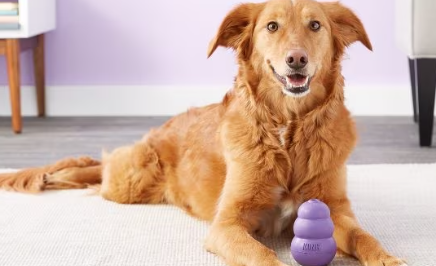5 Things That Can Help Dogs With Anxiety

Is your furry friend showing signs of anxiety? Many pet owners face the challenge of managing their pet’s anxious behaviour, which can manifest in various ways, such as excessive barking, pacing, or destructive tendencies. However, the good news is that several effective methods can help alleviate anxiety, making a difference in your pet’s well-being. Let’s dive into strategies that can help ease stress and ensure your four-legged companion feels secure and happy
Hemp Chews for Calming
Hemp chews for dogs have gained popularity as a natural remedy. These chews are typically infused with hemp oil, which contains cannabinoids known for their calming and anti-anxiety properties. Many pet owners have found that these chews can help reduce nervous behaviour and promote relaxation, making them an excellent option for pets with mild to moderate anxiety. Choosing a high-quality product from a renowned source and consulting your veterinarian before introducing new supplements into your pet’s diet is essential. Some pets may respond better to hemp chews than others, so it might take some experimentation to find the proper dosage and product.
Create a Safe Space
Creating a designated safe space is one of the first and most crucial steps in helping an anxious pet. This space should be a quiet, comfortable area where your pet can easily retreat when they feel overwhelmed or stressed. It could be a cosy corner in your living room or a specific room in your home where they can relax without distractions. Make this space inviting by adding their favourite toys, a soft bed, and perhaps a blanket or piece of clothing that retains your scent.
Establish a Routine
Establishing a proper daily schedule for feeding, walks, and playtime can significantly reduce your pet’s anxiety. When pets know what to expect throughout the day, it minimises uncertainty and stress, creating a sense of security. For example, if your pet knows that every morning they will go for a walk, followed by breakfast, it provides structure and a reliable pattern that they can count on. Have you noticed that your pet becomes anxious when there’s a change in routine, such as when you leave for work or have visitors? Keeping things as predictable as possible can help them feel more relaxed and secure, reducing the likelihood of anxiety-driven behaviours.
Exercise and Mental Stimulation
Regular physical exercise is essential not only for your pet’s physical health but also for their mental well-being. Daily walks, play times, and other forms of activity help burn off excess energy that might otherwise contribute to anxiety. Exercise also help with endorphin levels, which are natural stress relievers. Beyond just physical exercise, it’s also essential to provide mental stimulation. Interactive toys, puzzle feeders, and training sessions can keep your pet’s mind engaged and focused, reducing the chances of anxiety taking hold.
Positive Reinforcement Training
Positive reinforcement is quite a powerful tool for managing and reducing anxiety in pets. This training method involves rewarding your pet for calm behaviour and encouraging them to remain relaxed in situations that might otherwise cause stress. For example, if your pet experiences anxiety during car rides, you can start by rewarding them for simply approaching the car without showing signs of stress. Gradually, you can increase the challenge by rewarding them for getting inside the vehicle and sitting calmly during a short drive. Over time, your pet will associate the car with positive experiences.
Helping an anxious pet requires patience, understanding, and a multifaceted approach. From creating a safe space to using hemp chews for dogs, these steps can help you significantly improve your pet’s quality of life. It’s important to remember that every pet is unique, so finding the best strategies for your furry friend may take some time and experimentation. With dedication and love, you can help your pet feel more secure, less anxious, and ultimately happier and healthier.





